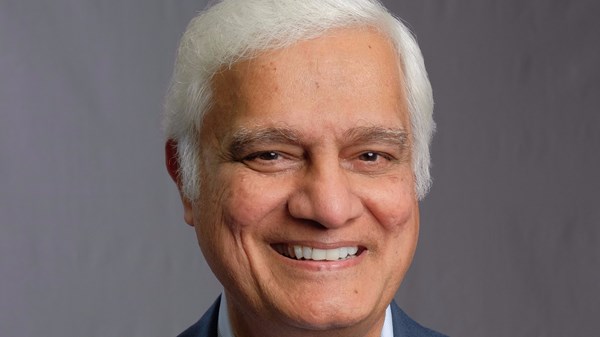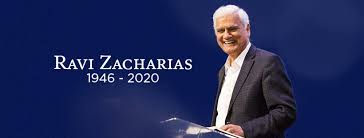
A short response to the Ravi Zacharias scandal.
I won’t add to what has been written regarding the facts that have come out, other than to agree that the late Zacharias’ abuse of women was sinful and hypocritical. I believe the evidence to be incontrovertible. There is much more to say, but others have already done so.
It is not, however, a fatal blow to the Christian faith nor to apologetics, much as that theme will be sung from keyboards around the world. This is for the following reasons:
- There is nothing Zacharias taught that had not been taught centuries before by other Christians. The church does not depend upon him, though his failure as a Christian sullies his ministry, his books, his lectures, all of it. But as is the case with nearly all Christians, Zacharias was not an original thinker. He was not breaking new ground. There have been great teachers in the history of the church that were original thinkers. Their rarity and scarceness attest to the inherent danger in originality in theology. I’m thinking of Augustine, Luther, Calvin–men of that calibre. Those who strive to be original thinkers have often proved to seek a name for themselves as creative but are frequently sources of heterodoxy or heresy. I would guess that most of us pastors, teachers, and evangelists are attempting to be faithful re-packagers, not producers of new things. We attempt to bring ancient and establish truth into the era in which we live. While we may seem to bring fresh and new truth it isn’t new if the message is faithful. Newness is in the ear of the listener. So I don’t seek to disparage Zacharias when I say he was not an original thinker. He was successful in translating old truths to the present day, as are thousands of other ministers of the Gospel. This means that none of us is indispensable.
- Christ has built His church, and the gates of hell cannot prevail against it (Matthew 16:18). This means that the church is equipped to take offence against Satan. We are not the losers in this scenario. One man failed, and it can be argued that those who should have been confronting him failed as well. But this is not a fatal error for Christ or His church—we are still equipped for battle even if one of the quartermasters defected. Ephesians 5:10-20 has not been removed, and the weapon of warfare, the Sword of the Spirit, the Word of God, is still effective for all who will take it up.
- No one will stand before Christ in judgement and declare himself innocent because of another’s scandal. I once met a man who gave up Christ because of the scandals involving his favourite televangelist, Jimmy Swaggart, in the mid-1980s. This man’s faith was more in Swaggart than in Christ. If you lose Christ because of the actions of another human, you never had Him in the first place.
- I think that I would not use Zacharias’ teaching material at all. There is nothing essential in them, although they were once helpful. He was an apologist, and now it will be imagined that the truth he spoke is discredited. I would not give that kind of ammunition to an opponent.
- On the other hand, he should not be sent down the memory hole, as though he did not exist or we never heard of him. In his speaking and writing, he was not lying or misleading. It was his life that was the lie. Still, God used him, though he failed and was an abuser, a sinner. Still, his materials should be replaced at places like Ligonier, Logos, etc.
- Finally, this brings me to the value of Ravi Zacharias as an apologist, though not as we might expect. We will hear in the next while about the extent of the scandal, how horrible it is, what evil it is and likewise the culpability of those who covered it up.
We will hear much damning evidence, and terms like “evil” and “hypocrite” will be part of every article written. We will certainly hear of the damage he did to women, and to the reputation of the church.
But this leads us to the most important question: “By what standard?” By what standard was Zacharias evil? Christians can and should name sin for what it is, but from an atheistic/materialistic worldview calling Zacharias evil, is absurdly arbitrary. If there is no God, there is no standard. Zacharias was only acting according to the accident that brought him to this place in the universe. This question will, sadly, be his only lasting legacy in apologetics.
So now, more than ever, we must ask, “By what standard was this man’s actions evil?”

